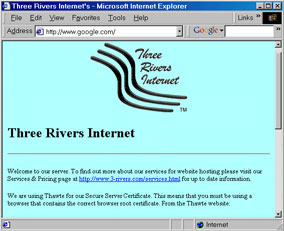Bottomquark’s review of distributed computing projects. What’s striking is that there are commercial distributed projects — where companies pay for the use of your idle time. That’s a powerful concept. Instead of buying computers from a vendor, or even computing time from a vendor, these projects are buying computing time retail.
The reason I guess this works is the dis-aggregation of computing time. When I buy a computer, I need its use for about 12 hours a day. But I’m paying for its availability 24 hours a day. Since I have that spare power, I can sell it as long as there’s a liquid market for such power.
Shortly, there will be companies creating this market — focusing on aggregating the retail computing power, and using them across several projects. (Google is already trying to do that through its toolbar, and so is Intel.)
Further, projects that earler could not be executed for lack of computing resources, but generating sufficient interest across the world, can now be undertaken. Like Internet Movie Project, for instance. Because people who are interested in the project will pay for it through their spare computing time.
